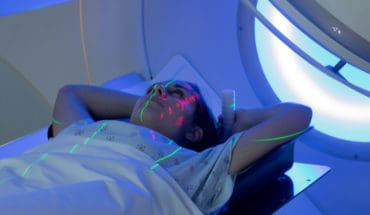Experts from Northumbria University have joined forces with professionals from the North East Ambulance Service (NEAS) for a research project that aims to inform new guidance for ambulance trusts supporting people who call frequently. Frequent callers can have a combination of complex mental and physical health issues, and may also be experiencing social issues such as loneliness and isolation.
Researchers from Northumbria’s Department of Social Work, Education and Community Wellbeing are working with Gayle Fidler, Emergency Operations Centre Support Services Manager for NEAS, to interview people who call frequently, frontline paramedics, health advisors and senior clinical advisors from NEAS in a bid to improve routes to the right support and interventions for patients.
Dr Tracy Collins from Northumbria, who has a clinical background in occupational therapy, is leading the study which has received funding support from the National Institute for Health and Care Research (NIHR) Clinical Research Network North East and North Cumbria’s Targeting Health Needs award.
She is collaborating with Dr Jason Scott, a Chartered Psychologist and national academic lead for the Frequent Caller National Network (FreCaNN), which helps to inform ambulance service policy and practice in relation to frequent callers across the UK, and Senior Research Assistant Lisa Moseley, who comes from a career in social work.
“It became clear from our conversations with colleagues and practitioners that ambulance trusts supporting people who call frequently often have social needs in addition to medical needs,” said Dr Collins.
“We’re keen to know more about individual experiences and allow those people who do self-identify as being lonely and socially isolated to the ambulance service to have their voices heard. We need to begin to understand their unmet needs so we can begin to make recommendations for alternative routes of support.”
Due to the sensitive nature of the topic, only people who self-identify as lonely and socially isolated have been interviewed using open questions which gather information anonymously on their circumstances, social circle and community support networks. Their lived experience is being explored alongside the views of NEAS staff.
Health advisors and paramedic crews dealing with contacts from people who call frequently have been featured in the popular BBC documentary, Ambulance, which followed and filmed with NEAS crews during series 9.
Director of Paramedicine at North East Ambulance Service, Andrew Hodge, said: “Patient care is our priority so it’s important for us to understand the nature of our calls and how we might further support our patients.
“We are currently undergoing this research study with Northumbria University to support patients who experience loneliness and isolation and have felt the need to contact the ambulance service.
“We work closely with other agencies to ensure that patients have access to a range of services that may be able to support them. Working with the university on this project, we hope to understand our patients better so that we can often greater support to them where needed.”
The project follows a research paper published in the British Paramedic Journal by Dr Scott, Dr Collins and a group of expert authors from UK ambulance services which analysed the impact of the COVID-19 pandemic on people who call frequently and how ambulance services in particular were adapting to suit changing patient needs.
The team are currently analysing data from interviews with service users and staff and hope to be able to publish the research findings later this year.
Plans to harness Northumbria’s research, education and knowledge exchange expertise to help meet the health and social needs of communities in the region and beyond are being developed as part of the University’s Centre for Health and Social Equity (CHASE).
Discover more about CHASE by visiting
- RV3-BB rotavirus vaccine at birth boosts microbiome - 8th May 2025
- No Mind Left Behind: Support the Carers - 4th May 2025
- Climate change causes longer pollen seasons in capital cities - 4th May 2025






